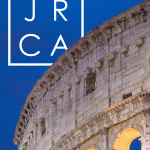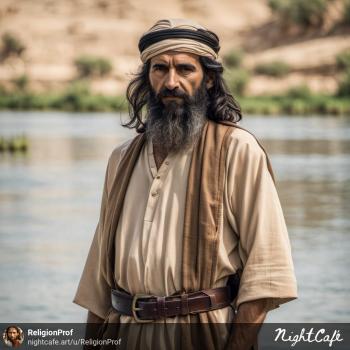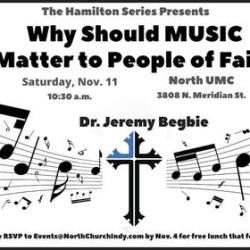I want to share this call for panels and presentations at the National Humanities Conference which will be in Indianapolis this year. If you’ll be coming to Indianapolis and are a reader of my blog, plan on saying hello.
Deadline for submitting proposals: February 21, 2020
The Federation of State Humanities Councils and the National Humanities Alliance are excited to announce the 2020 National Humanities Conference, which will be held in Indianapolis. This annual conference brings together representatives from colleges, universities, state humanities councils, cultural institutions, and other community-based organizations to explore approaches to deepening the public’s engagement with the humanities.
Indianapolis is nicknamed the “Crossroads of America” because of its historic location along the old National Road and current site where four major interstates intersect. The conference convenes days after a presidential election, which like all national elections, is a crossroads, offering the opportunity to reflect on how we have arrived at this point and where we are heading. In this spirit, we invite proposals that explore the generative, exciting possibilities of public humanities work that happens at the crossroads.
Crossroads as decision points. When and how can the humanities and humanities practitioners help communities wrestle with tough choices? What difficult decisions face our own institutions—and how do we decide which way to go? Where have we taken risks, even if we failed—and what did we learn? When we’ve found our organizations at a difficult crossroads, how did we navigate rocky terrain and what happened as a result of our choices?
Crossroads as freedom. There’s a rich tradition of expression that associates crossroads with freedom—a place where multiple opportunities open up in front of you. How can the humanities help communities discuss, even reimagine the meaning of freedom for all? In an increasingly partisan landscape, where should the humanities and humanities practitioners enter such conversations that may have unequal power dynamics?
Crossroads as uncertainty. In many cultures around the world, the crossroads is a liminal, uncertain space that is outside of normal time and space. A place that is neither here nor there, the crossroads and its uncertainty can be part of a process of becoming something new. Are there times in our own practice where we experience uncertainty and disorientation? Are there times when our programs create uncertainty and disorientation among their participants? What, if anything, is generative about doing humanities work where uncertainty is foregrounded?
Crossroads as intersections. When we reframe the crossroads as an intersection, some connotations fall away and others emerge. Interesting, good, complex work happens at the intersection of ideas, disciplines or methods. Are there outstanding models of interdisciplinary public humanities projects we can learn from? Where have unusual partnerships yielded new, urgent, meaningful public humanities work? We’re particularly interested in sessions that help us learn about public humanities initiatives or programs that address the following intersections: STEM/humanities, race/class/gender, arts/humanities, urban/rural, public/private.
We hope these questions are broad enough to spark session proposals that reflect the full range of work humanities organizations, practitioners, and scholars do: create and deliver public programs, form community partnerships, educate students, communicate with and convene publics, advocate for funding, cultivate donors, make grants, and build audiences.
In the spirit of the crossroads—places of coming together and exchange—we especially encourage session proposals that bring together humanities practitioners (state humanities council staff, museum workers, podcast producers, community historians, etc.) and scholars/academics. See examples from the 2019 conference.
DEADLINE FOR SUBMITTING PROPOSALS: February 21st, 2020
Formats
We invite proposals that model best practices in the public humanities. In other words, session leaders design lively, even fun ways of presenting information and participants are engaged as co-creators of knowledge. To that end, we encourage:
- Sessions that model public humanities program design: dynamic, inclusive, and, where possible, participatory or hands-on.
- Presentations that are concise and employ accessible language. We encourage moderators to ensure that presentations conform to predetermined limits: at least half of each session should involve audience participation.
- Actionable takeaways that others can apply to their own practice or organization.
- Sessions built around a problem, tension, or challenge in our work, with time for reflection and solutions-oriented discussion.
Indiana Humanities, the host council, is committed to creating an indelible experience that makes the most of our host city. If you have ideas or questions about opportunities to take your session off site or to identify local practitioners in order to strengthen your proposal and deepen learning and exchange, please contact Leah Nahmias, director of programs at Indiana Humanities (317-616-9804 / [email protected]). Please note in your proposal if you need more than the standard 75-minute block of time for your session.
SESSION PROPOSALS
EXPERIENTIAL HUMANITIES PROGRAM: These sessions engage conference attendees in actual humanities programming, modeled on successful programs carried out throughout the year. Sessions that draw on the city or the surrounding area and/or convey a sense of place are especially encouraged. Examples from the 2019 program can be found here.
FACILITATED DISCUSSION: One or two facilitators drive a conversation on a topic with a group of conference attendees. Conversations can broach themes of common interest, common challenges or points of tension within the humanities community. Topics for facilitated discussion should appeal to a wide range of conference participants in order to bring diverse voices into the conversation.
INTERVIEW: These sessions feature free-form dialogue between a humanities professional and an interviewer.
WORKSHOP: A hands-on session that teaches a particular skill set associated with program development, communications, collaboration, assessment, development/fundraising, cultivating new audiences or any other aspect of humanities programming.
ROUNDTABLE: Roundtables consist of a group of experts discussing a topic in front of an audience, rather than each presenting discrete remarks. A moderator leads the discussion and poses questions, but all participants speak equally about the topics. These sessions are limited to four discussants and one moderator.
PANEL: This traditional format includes a moderator and no more than three presenters. Presentations are timed so that at least half the session consists of moderator questions and discussion with the audience.
WORKING GROUPS: Working groups are seminar-like conversations of at least eight people that explore, in-depth, a subject of shared interest. Working groups will be accepted even if they do not have eight participants, but additional participants will need to be recruited after the session is accepted. The working group convenes for a session at the conference, but also converses before the conference and develops a product after. Each working group will have a facilitator, responsible for organizing the pre- and post-conference exchanges and facilitating the conversation at the conference itself. Working groups can open up for audience observers or confine participation to the members of the working group.
INDIVIDUAL PROPOSALS
We invite proposals for individual flash presentations (5 minutes) that relate to one of the key crossroads themes outlined above: 1) decision point 2) freedom 3) uncertainty 4) intersection. The program committee will curate lightning round sessions of similarly themed presentations.
To submit a proposal:
Please submit session proposals via the online form here. Please submit proposals for individual flash presentations via the online form here. The deadline for proposal submission is Friday, February 21st, 2019. For questions regarding the online submission form, please contact [email protected].
The Federation of State Humanities Councils
The Federation of State Humanities Councils, founded in 1977, is the membership association of 56 state and territorial councils. Through its conferences, collaborative projects, information services, and communications to members, legislators and others on issues of public interest, the Federation supports the state humanities councils and creates greater awareness of the humanities in public and private life.
State humanities councils are independent, nonprofit organizations that support grassroots humanities programs and community-based activities in each state and US territory. Created by Congress in the early 1970s, councils receive an annual Congressional appropriation through the National Endowment for the Humanities, which for most councils is supplemented by state and private funding. Councils are run by small staffs and governed by volunteer boards drawn from academia and the public.
The National Humanities Alliance
The National Humanities Alliance (NHA) is a nationwide coalition of organizations advocating for the humanities on campuses, in communities, and on Capitol Hill. Founded in 1981, NHA is supported by over 200 member organizations, including: colleges, universities, libraries, museums, cultural organizations, state humanities councils, and scholarly, professional, and higher education associations. It is the only organization that brings together the US humanities community as a whole.













